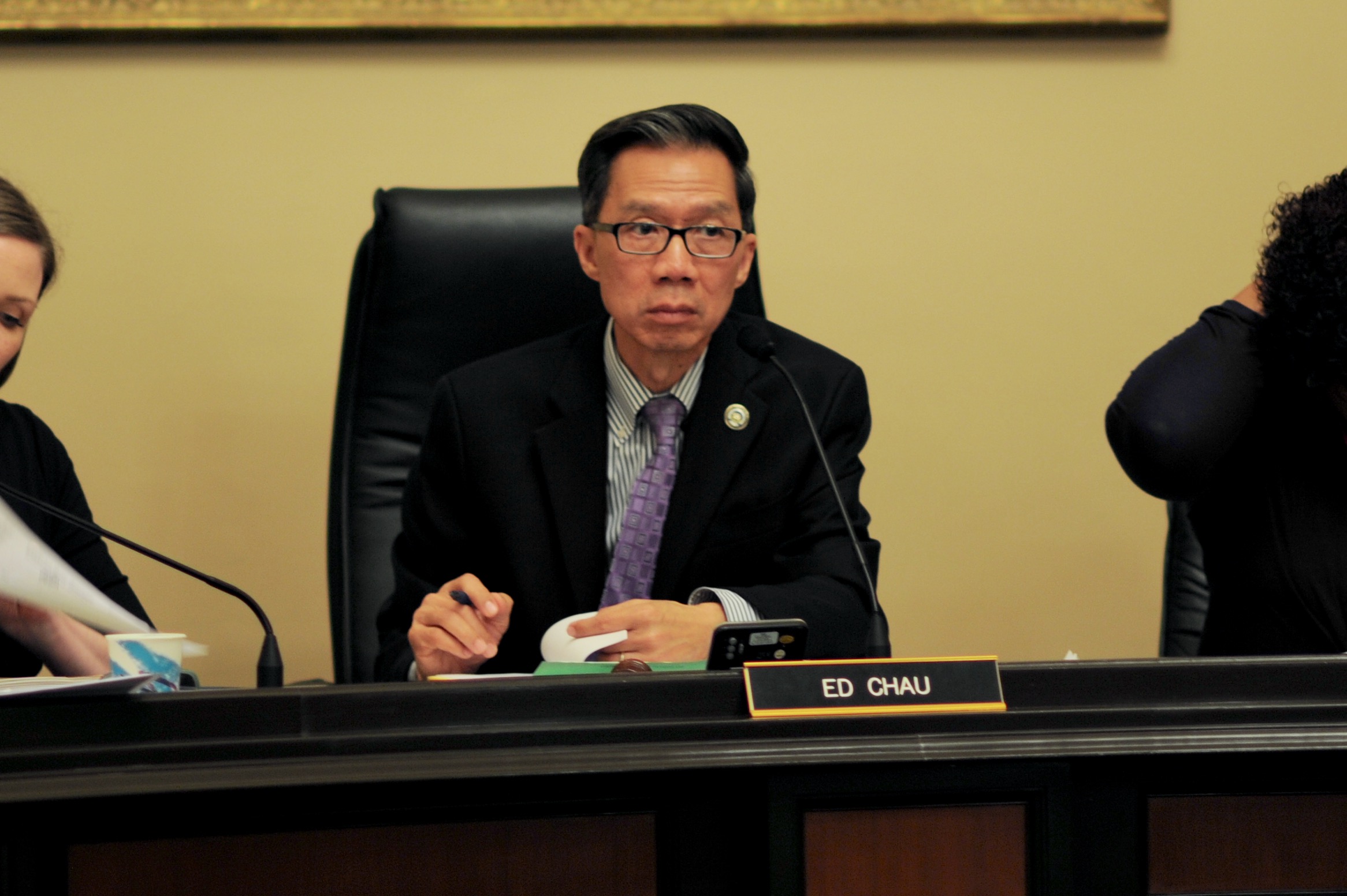
Assemblyman Ed Chau. (Kevin Sanders for California Globe)
California’s Online Privacy Law to be the Basis for a New Nationwide Online Privacy Bill
Senators in Washington are to bring the new bill before the Senate in the near future
By Evan Symon, November 28, 2019 12:34 pm
A California bill that is to give Californians greater digital and personal data privacy starting in 2020 may soon be law nationwide after U.S. Senator Maria Cantwell of Washington proposed another.
The Consumer Privacy Act was fought by every major tech company in 2018

The bill in question is California’s Consumer Privacy Act, also known as AB 375. In 2018 the bill, written by Assemblyman Ed Chau (D-Monterey Park), was the hardest fought bill of the session, with millions of dollars poured in to stop it coming from companies such as Facebook, Google, AT&T, and Amazon. Despite their worries over what data rights would mean and now being held directly accountable for any future data leaks, AB 375 was passed and signed into law by former Governor Jerry Brown the same year, with implementation to begin on January 1st.
The new law will give Californians extended privacy and new rights online, including knowing what personal data is being collected about them, the right to say no to the sale of personal data, the right to see the personal data about them that has been collected, the right to know who the data was sold to, and the right to have a business delete personal information about them that had been collected. The rights are to be implemented on various websites and user agreements, and if any data is given or is released out with the users permission, the company would be directly at fault.
California’s new law will now be discussed in the Senate
With companies now facing with the decision to either give Californians separate rights from other users in other states, lawmakers in Washington have decided to possibly not even make that a choice. Senator Cantwell’s bill, the Consumer Online Privacy Rights Act (COPRA), would closely follow California’s upcoming new law. Unlike the House’s rival bill that would create a new federal agency over this, the bill would simply have the new privacy and personal information agency be under the FTC by 2022. Otherwise, the spirit of the law remains intact
“The key thing is that obviously you have to have privacy rights. It should be clear and you should know what they are,” stated Senator Cantwell.
Democrat approval and Republican objectivity

While Senate Democrats are behind the bill, including Minnesota Senator and Democratic Presidential nominee hopeful Amy Klobuchar, Senate Republicans have not yet committed.
“The legislation released today reflects where the Democrats want to go,” said Senator Roger Wicker, a Mississippi Republican. “Any privacy bill will need bipartisan support to become law. I am committed to continuing to work with the ranking member and my colleagues on both sides of the aisle to get a bill that can get across the finish line. I expect that we will have a bill to discuss at next week’s hearing.”
California’s new law, because of how closely the Senate bill follows it, would not be changed in any way.
If passed, the privacy bill would be the latest Californian law that was quickly made into national law or policy, coming right after California’s Student-Athlete compensation law was accepted as the new national standard in October, less than two months after being passed.
COPRA is expected to begin being discussed in the Senate early next week.
- Bill to Require Law Enforcement Disclosure if AI Was Used To Help Write Reports - August 7, 2025
- Gov. Newsom Files FOIA Request To ‘Expose True Cost’ Of L.A. Federal Troop Deployment for Anti-ICE Riots - August 6, 2025
- California Redistricting: How Newsom’s Plan Will Demolish Hard Fought GOP Gains - August 6, 2025





From Georgia, USA. No thanks for CA laws.